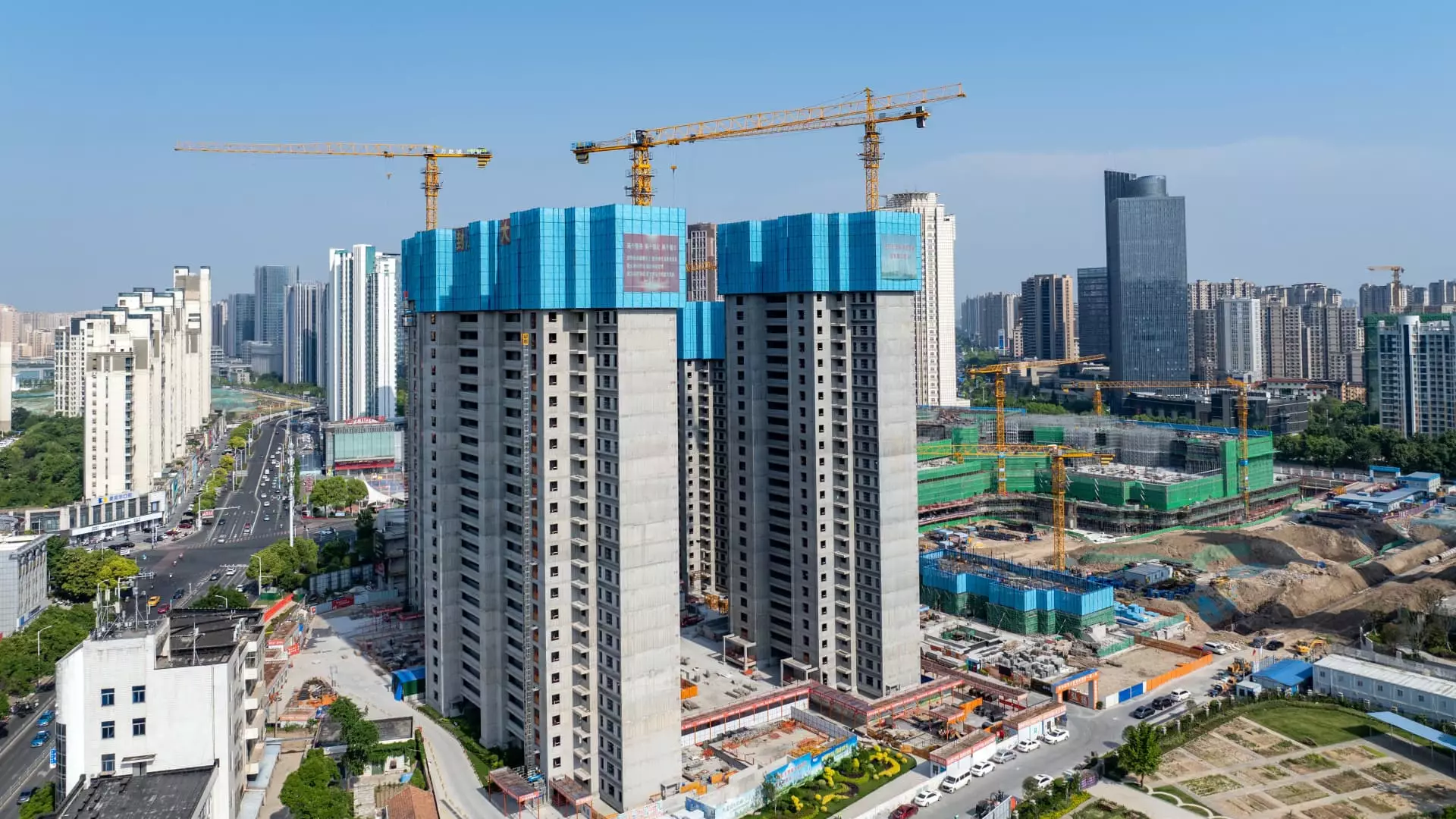China’s recent policy changes to support the real estate market have garnered attention from analysts, who believe that these moves will take time to yield results. S&P remains cautious in its outlook, sticking to the belief that the property market is still in a state of flux. Edward Chan, director of corporate ratings, highlighted the significance of the government’s comprehensive policy rollout, emphasizing the seriousness and dedication of the authorities in stabilizing the property sector. However, he also pointed out that significant stabilization in the real estate market would require an improvement in homebuyers’ demand and confidence, especially after experiencing a prolonged market downturn over the past three years.
Despite the initial surge in Hong Kong-listed property stocks following the policy announcements, there was a lack of sustained enthusiasm as indicated by the industry index from financial database Wind Information. The Chinese authorities’ decision to lower down payment minimums and remove the floor on mortgage rates, in addition to providing liquidity to developers, was seen as a step in the right direction. Goldman Sachs’ Chief China Economist Hui Shan acknowledged the unprecedented nature of some of the measures but emphasized that more substantial funding was required to address the existing inventory and stabilize home prices. Nomura’s Chief China Economist Ting Lu echoed similar sentiments, noting that Beijing’s shift towards ensuring the timely delivery of pre-sold homes was crucial in rebuilding buyers’ confidence and resolving the housing crisis.
Despite the government’s efforts, challenges persist in the real estate market. Official data revealed a continued decline in real estate investment and slower growth in retail sales, underscoring the impact of economic uncertainty on consumer spending. The prolonged delivery times for pre-sold apartments have also hindered homebuyers’ confidence, affecting their willingness to enter the market. These delays, coupled with financing issues for developers, have contributed to a lack of stability in home prices, further dampening market sentiment. Analysts emphasize the need for patience and more decisive measures to address the underlying issues plaguing the real estate sector.
Goldman Sachs analysis indicates a rapid decline in housing prices, with estimates suggesting a significant drop from historical highs in recent years. Nomura’s Ting Lu projects a substantial funding gap for completing pre-sold apartments, further complicating the market dynamics. He anticipates that a national survey of residential projects could provide insights into the funding requirements for the completion of these properties. Rebuilding homebuyers’ confidence in the presale system is seen as a critical step towards revitalizing China’s housing markets, emphasizing the importance of transparency and accountability in the sector.
China’s real estate market faces a complex set of challenges that require careful navigation and decisive action from policymakers. While recent policy changes signal a commitment to stabilizing the sector, the road ahead remains fraught with uncertainties and obstacles. Building trust, addressing funding gaps, and improving market sentiment are key priorities for ensuring the long-term sustainability of China’s real estate market.

